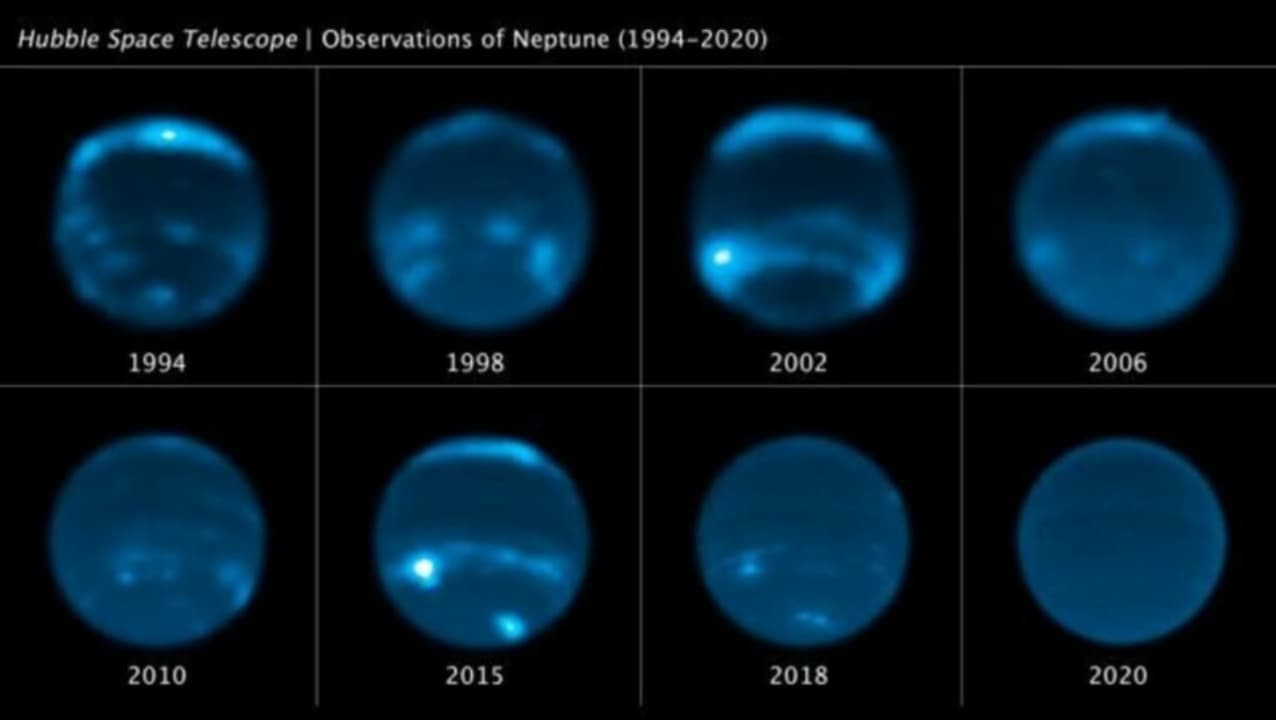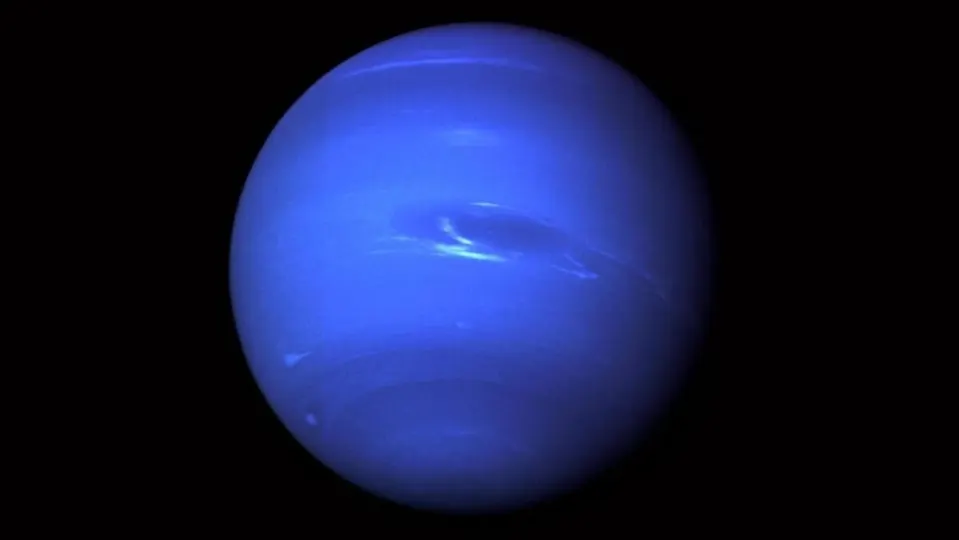If you’ve seen any photographs of the planet Neptune, you’ve likely noticed the distinctive clouds that populate its beautiful blue atmosphere. Well, we hope you haven’t become too attached to them, as new research shows they are disappearing.
As reported in a recent study published in the scientific journal Icarus, the clouds in Neptune’s mid-latitudes began to fade in 2019, and by 2020, the planet was virtually cloudless. The study is based on datasets collected since 1994 by the Hubble Space Telescope, since 2002 by the Keck Observatory, and by the Lick Observatory in 2018 and 2019.
Researchers state that Neptune’s cloud amount fluctuates in cycles of about 11 years, which appear to be synchronized with solar activity. In other words, when the Sun is more active and emits more ultraviolet radiation, Neptune has more clouds, and when the Sun is more “quiet,” Neptune has fewer clouds.
After analyzing the data, it was observed that clouds began to appear on Neptune almost 2 years after the onset of intense solar irradiation, and there is a positive correlation between cloud coverage and Neptune’s albedo, which is the amount of sunlight the planet reflects.

Scientists point out that this phenomenon is not the first time it has occurred, as Hubble images reveal that Neptune’s cloud behavior has followed the solar cycle. However, what has caught researchers’ attention is how rapid and drastic the most recent change has been.
This peculiarity remains a true mystery for scientists, who do not fully understand how solar radiation can have such a significant impact on Neptune’s atmosphere, given that it is a planet far removed from the Sun and receives only a very small fraction of its energy.
The study’s authors hope to continue observing Neptune to better understand its atmospheric processes and its relationship with space weather.
Some of the links added in the article are part of affiliate campaigns and may represent benefits for Softonic.


